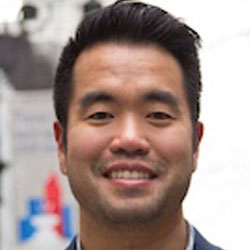
I left my Korean church eight years ago. It was my third departure in 11 years, but this was different. This time, I didn’t walk through a revolving door into another Korean church. I walked away from church altogether.
I was furious at the individuals who forced my resignation. My heart was freshly ripped from the community I loved for six years. Initially, I tried to appreciate the perks of not going to church. I enjoyed watching the entire slate of Sunday football games. I grew out my beard, which I previously could only do on mission trips. The fun did not last long. I started having panic attacks (I’ll never forget my first one) and my emotional outrage settled into a persisting numbness. I needed help; I needed to see a therapist.
We began with him asking about my recent, 20-pound weight gain. By the end of our first session, he made a diagnosis: “You lost your voice.”
Well, I had remained silent as deacons and elders executed a one-year plan and budgeted tens of thousands of dollars to have me fired. I remained silent when my pastor handed out candy during an altar call at an orphanage in Russia so more kids would come up for the photo-op.
When I did speak, I often regurgitated directives. I felt like a company man, year after year, coercing the youth to perform at the church-wide Christmas concert. When church leaders acted against the best interest of the youth ministry, I did not confront those in power, turning to comfort students and staff instead. This was a trained submission; I had learned my place within our cultural hierarchy. In the same way parents wouldn’t make major home renovations because their kids insisted upon it, I came to understand that the power dynamics within Korean churches would make it no small feat for a second-generation pastor to speak out.
I wanted to speak for a ministry culture that was less behavior oriented, with less taboo designations — including more dialogue around controversial topics —and safer spaces free from shame, slander, and judgment. I wanted to confess aloud that our ministry wasn’t effectively preparing our youth to follow Jesus in college and that wholesale changes were in order. I wanted to voice my displeasure at the burnout rate of adult volunteers and the turnover rate among pastors. I wanted to rebut “put your money where your mouth is”, whenever I heard first-generation pastors and elders claim reviving their children’s spirituality as their greatest priority. Many Korean churches boast of allocating 50-70 percent of their budget for international missions, and most want to purchase buildings. The little amount that remains can’t possibly be considered their “priority”.

I wanted to demand reform. My therapist helped me realize, there was so much I wanted to say, so much I had to fight for.
Since my departure, I’ve wondered, how did the systemic ills of the Korean church become my fight? What triggered me to even attempt tackling problems that have remained unsolved for over 30 years? Here’s the early list of possible reasons I worked through: I’m sensitive when wounded, vindictive, spiteful when bitter, feel superior by deconstructing what others built, feeding my martyr complex, and I consider future preservation in case I am employed again by a Korean church. In the years to follow, I noticed a pattern that when things felt wrong, I felt compelled to make them right. I recently discovered that this is my prophetic impulse energizing me to create something better.
In biblical times, it was the prophets who spoke out when things weren’t right. The heart-piercing nature of their diagnostic spotlight startled their listeners — less like a deer in headlights, more like exacting a twitch reaction. Prophecies didn’t just point out what was wrong; prophecies always included an opportunity to make things right, even against the prophet’s will!
Jonah balked at the thought of revealing to Nineveh God’s plan to destroy them on account of their great evil. Jonah understood the redemptive purpose of prophecy, and salvation was the last thing he wished on his enemies: “This is why I made haste to flee to Tarshish; for I knew that you are a gracious God and merciful, slow to anger and abounding in steadfast love, and relenting from disaster. Therefore now, O Lord, please take my life from me, for it is better for me to die than to live” (Jonah 4:2-3 ESV). To Jonah’s disgust, the Ninevites believed God and humbled themselves. God pitied them and relented.
If we, like the Ninevites, will tolerate prophets who agitate our internal bearings, they will navigate us towards God’s mercy. As prophecy reshapes us from within, our life is once again realigned to God’s future for us: “For his anger is but for a moment, and his favor for a lifetime” (Psalm 30:5 ESV).
You may feel this prophetic impulse as you pray, read Scripture, and follow Jesus in community. The spiritual charismatics understand that the spirit of prophecy primarily declares the testimony of Jesus’ love (Revelations 19:10). The rare occasions, when prophecy exposes sin, are always accompanied by a tangibly sweet mercy and an energizing hope for personal redemption. When another accuses you of being wrong, you may feel shame, despair, and hopelessness. When God reveals what you did wrong, trust that God will redeem you. The prophetic impulse here energizes your personal renewal.
Beyond personal renewal, I believe prophetic impulses are given to energize the renewal of all things in the sacred unfolding of human history. After all, the spirit and scope of prophecy is God’s creative, redemptive, and eternal purpose for everyone. Everyone includes Walt Disney, who in 1966, described his “something is not right” moment: “Twenty years ago, I was always trying to think of a place to take my two small daughters on a Saturday or Sunday afternoon — a place where I could have fun, too. At an amusement park, the only fun provided for a father ... [was] buying the tickets.” In these moments of dissatisfaction, creatives rip their way out of today’s bindings with outbursts of ingenuity, innovation, and revolution. Disneyland is just one example: Creatives are the world’s future configurators.
For those of you who believe in human archetypes, find Carl Jung’s work substantial, or the MBTI and Enneagram tools insightful, it won’t be a stretch to credit creative types throughout history with pushing their present forward into our transfigured future. This connection between creatives and their prophetic wiring (Ephesians 4:11) holds paradigmatic value for leadership consultants, boasting clientele and accolades both outside of the church (GiANT, Erica Ariel Fox), and within (Alan Hirsch). According to authors Jeremie Kubicek and Steve Cockram, 9 percent of the population are creative types with a prophetic wiring.

I have often felt this tight braiding of prophetic and creative impulses churning and shouting within me. Its grip molds and colors me: motivating major decisions, determining my career path, even spellbinding me to my wife’s fierce idealism. My prophetic impulses have anchored me to wrestle with what is not right. I feel possessed by a mandate to challenge the status quo. The redeemed future is always before me as if my next step forward will take me across. The warmth and happiness ahead pulls me in whenever I want to hit the eject button.
These prophetic and creative impulses energized my doctoral studies on why Chinese and Korean Americans in New York are leaving their ethnic churches for majority culture churches. I am currently church planting in hopes of creating a community that feels less wrong and more right. Through it all, I hear a familiar voice encouraging me, “Behold, I am doing a new thing; now it springs forth, do you not perceive it? I will make a way in the wilderness and rivers in the desert” (Isaiah 43:19 ESV).
The Assyrians arguably deployed the most vicious and inhumane army the world has ever seen. Jonah, and the nation of Israel, were not alone in their disdain for Assyria’s machinations. He saw Ninevah’s great evil. He learned to see that God’s redemption was greater. This is no ordinary vision that sees the possibility of redemption in the face of extraordinary evil. This is precisely why prophetic impulses are invaluable: Prophets declare that everything is redeemable; every wrong will be made right. Redemptive and creative vision is promised (Amos 3:7), but vision is not enough. We must be faithful.
God’s prophet to Assyria almost didn’t show up. At the end of the story, God needles Jonah by essentially asking, “Did you think I would invite you into such brokenness and not show up myself?” God showing up is unquestionable. Jonah eventually showed up. Today, it’s our turn.

Ezra Sohn is a church planter at Disciples NYC. He is in a season of exploring what it means to be a Korean American Christian through study, collaborations, and community organizing including his doctoral project titled, “Attitudes of Asian American Christians towards the ethnic churches they left.” He looks forward to contributing in multicultural spaces in a distinctly Asian American Christian way. Ezra and his wife Ellie and their two Jack Russell’s live in Queens, NY.